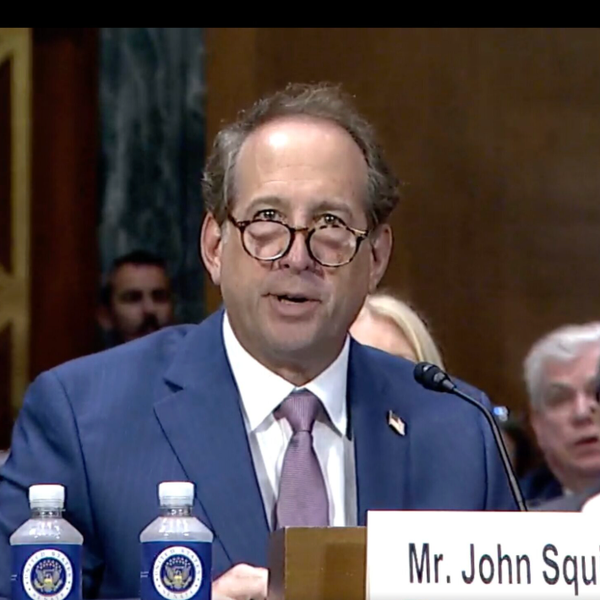Obamacare Penalized By Flawed Reporting In The New York Times

News flash – there is no penalty for failing to get health insurance under the Patient Protection and Affordable Care Act, aka Obamacare.
This news flash is prompted by a headline atop the front page of The New York Times Monday morning: “Talk of Penalty is Missing in Ads for Health Care.”
Reporter Anemona Hartocollis built an entire piece around a faulty premise, stated clearly in her third sentence. Times editors embraced her flawed reporting with the gusto of prominent placement, giving unwarranted credibility to what is, to be polite, a pile of misinformation.
Had Hartocollis read the law – or had any of the dozen or so Times editors who review every Page One story done so – they would not have published such nonsense anywhere in the paper.
The Times reported that the state and federal health exchanges are using humor and happy talk to sell the insurance products, criticizing this because:
The one part of the new system that they are not quick to trumpet is the financial penalty that Americans will face if they fail to buy insurance.
Had anyone at the Times read the law, they would know that is bunk. Here is what the law says, with statutory numbering removed:
WAIVER OF CRIMINAL PENALTIES. – In the case of any failure by a taxpayer to timely pay any penalty imposed by the section, such taxpayer shall not be subject to any criminal prosecution or penalties with respect to such failure.
LIMITATIONS ON LIENS AND LEVIES. – The Secretary [read IRS] shall not – file notice of lien with respect to any property of a taxpayer by reason of any failure to pay the penalty imposed by this section, or levy on any such property with respect to such failure.
There is a simple way for the world’s most authoritative newspaper to stop embarrassing itself this way – require reporters to actually read the laws they write about, a policy I suggested when I was a reporter there, obviously to no avail.
You can read the law yourself by going to the Government Printing Office website.
To read the quoted language just jump down to page 249 of the PDF, which is part of Chapter 48, titled “Maintenance of Minimum Essential Coverage.” That chapter begins at page 244 of the PDF.
To its credit, the Times does not completely ignore the story’s phony premise. After the jump from Page One to Page A14 – studies show about 85 percent of readers stop at the jump – Hartocollis offers a line that should have had editors questioning the premise of the piece. She wrote:
But there is also the dirty little secret of the penalty: It is a bit of a chimera, because the federal government cannot use its usual tools like fines, liens or criminal prosecutions to punish people who do not pay it. The penalty is supposed to be reported and paid with the income tax returns of those who do not buy insurance, but the government has not said how it will collect from those who owe it but do not pay it, though the law allows it to deduct from any income tax refunds.
That phrase “has not said” should have prompted a lot of questions from editors. Evidently not.
Another former Times reporter has a smart line about such flawed stories. Seymour Hersh once told me that on the front page of the Times, “you can read the greatest journalism human beings have ever produced, but move over one column and you may find pure crap.”
Sad, but true. Hartocollis’s mitigating paragraph on Page A14 and all, her piece remains unworthy of the Times because it fuels misunderstanding, the opposite of what reporting should do.
The law says, and journalists routinely report, that failure to get health insurance through an employer, on your own or through the exchanges results in a “penalty,” a word used in the statute. That word sows confusion. The “penalty” is actually a tax, the Supreme Court ruled in upholding the law.
So, to review, there is no penalty, which means a punishment for breaking the law. There is a small tax, as Chief Justice John Glover Roberts wrote in upholding the law.
Calling a tax a penalty is ideological, not reportorial.
To cite an example, there is no “death tax,” as is so often reported in the news. There is an estate tax and a gift tax, which are levies on the right to transfer large amounts of wealth. (A fiscally conservative Republican, by the way, sponsored the gift tax.)
Equating “penalty” with “tax” has no place, absent quote marks and attribution, in reporting (though it is perfectly proper for opinion columns).
To be fair to readers of this reported opinion column — I first learned of this non-enforcement provision three years ago from watching MSNBC’s Lawrence O’Donnell, who also actually reads the laws he speaks about on the air.
O’Donnell and I have been virtually alone in showing that the imaginary scandal over IRS agents closely reviewing applications for tax-exempt status by some political organizations stems from a faulty 1959 IRS regulation, and that the reviews were done at the direction of a career IRS middle manager who is a self-described conservative Republican.
That’s another story where Times coverage has fallen far short, partly for inadequate reporting on what the government rules state.
To Times editors, whose attitudes about criticism range in my experience from careful listening to extreme defensiveness, I offer a reminder: Your best friends are the people who tell you what you need to hear, not what you want to hear.
What the Times needs to hear in this case is that editors need to approach what seem like smart concept stories with skepticism, because when flawed pieces like this get into print, especially atop Page One, they breed contempt for the paper, which is bad for business, bad for the Times and bad for all journalism.
Photo: Wally Gobetz via Flickr








